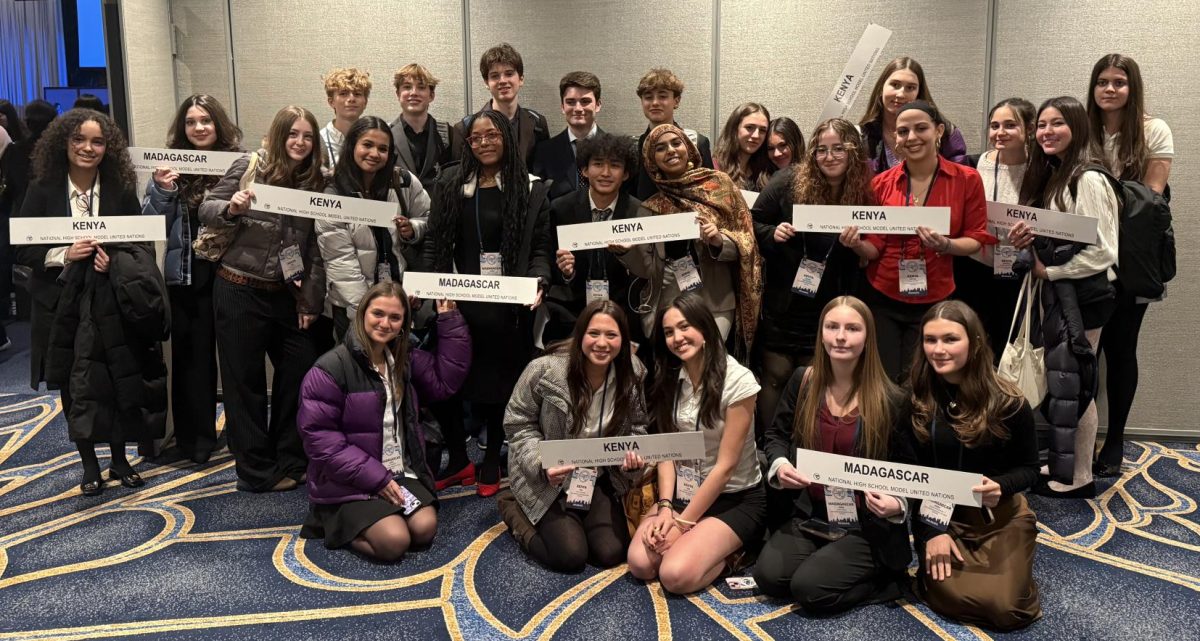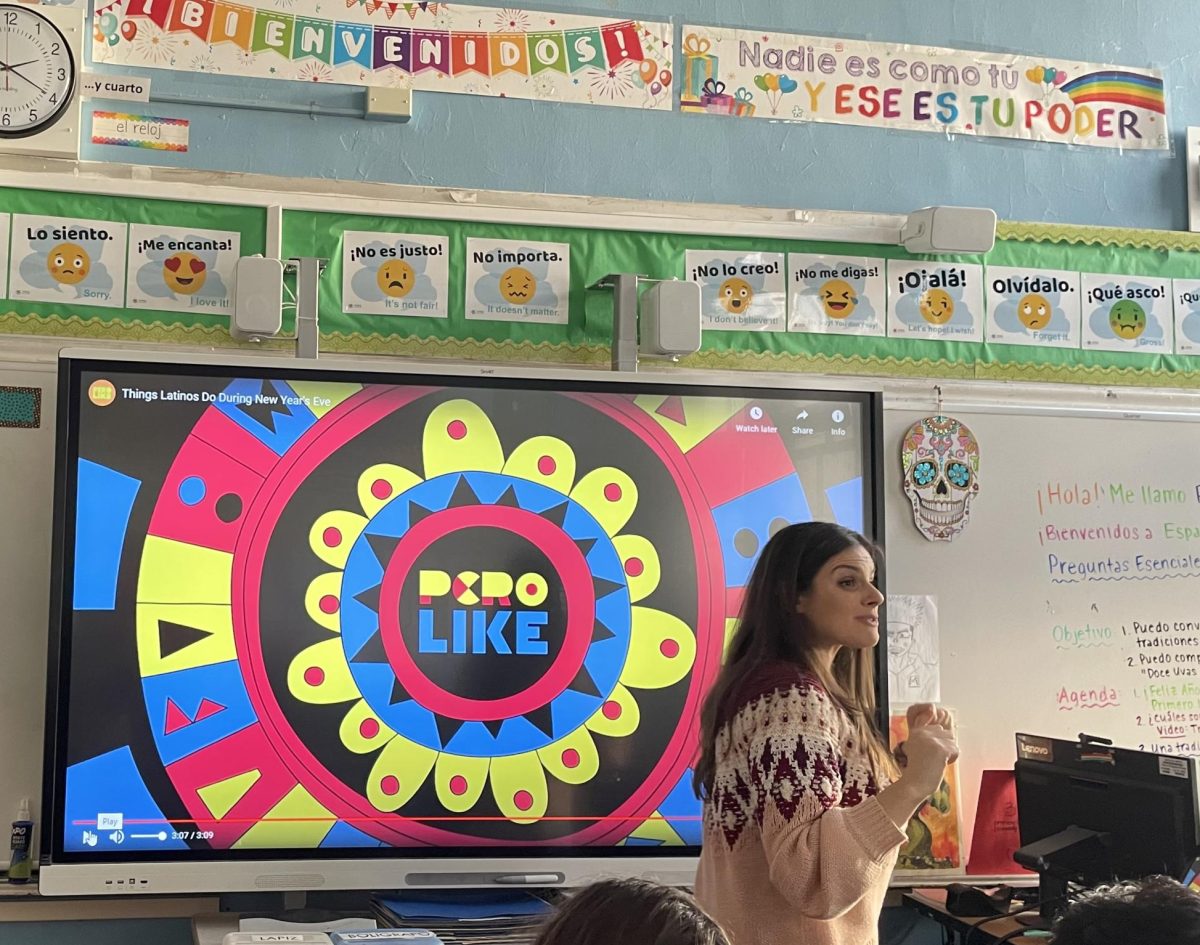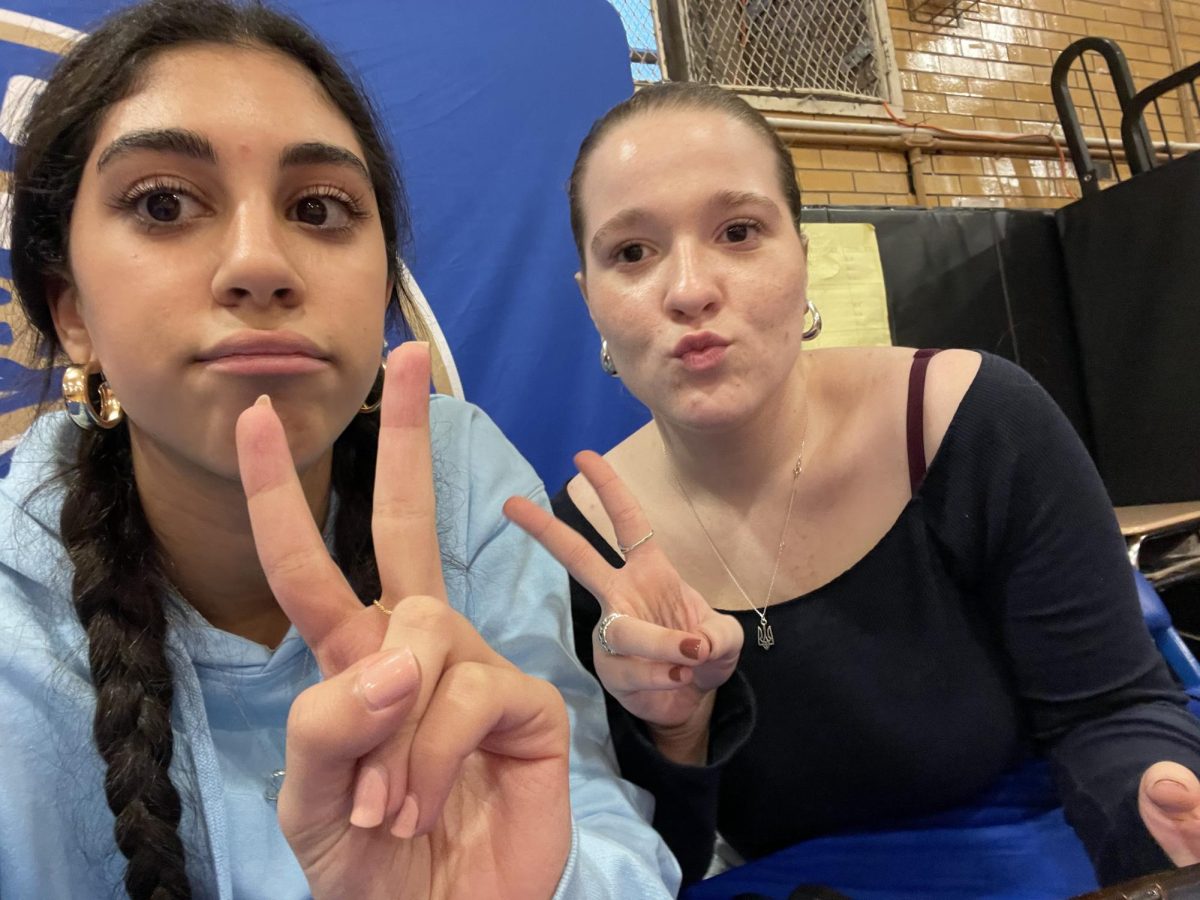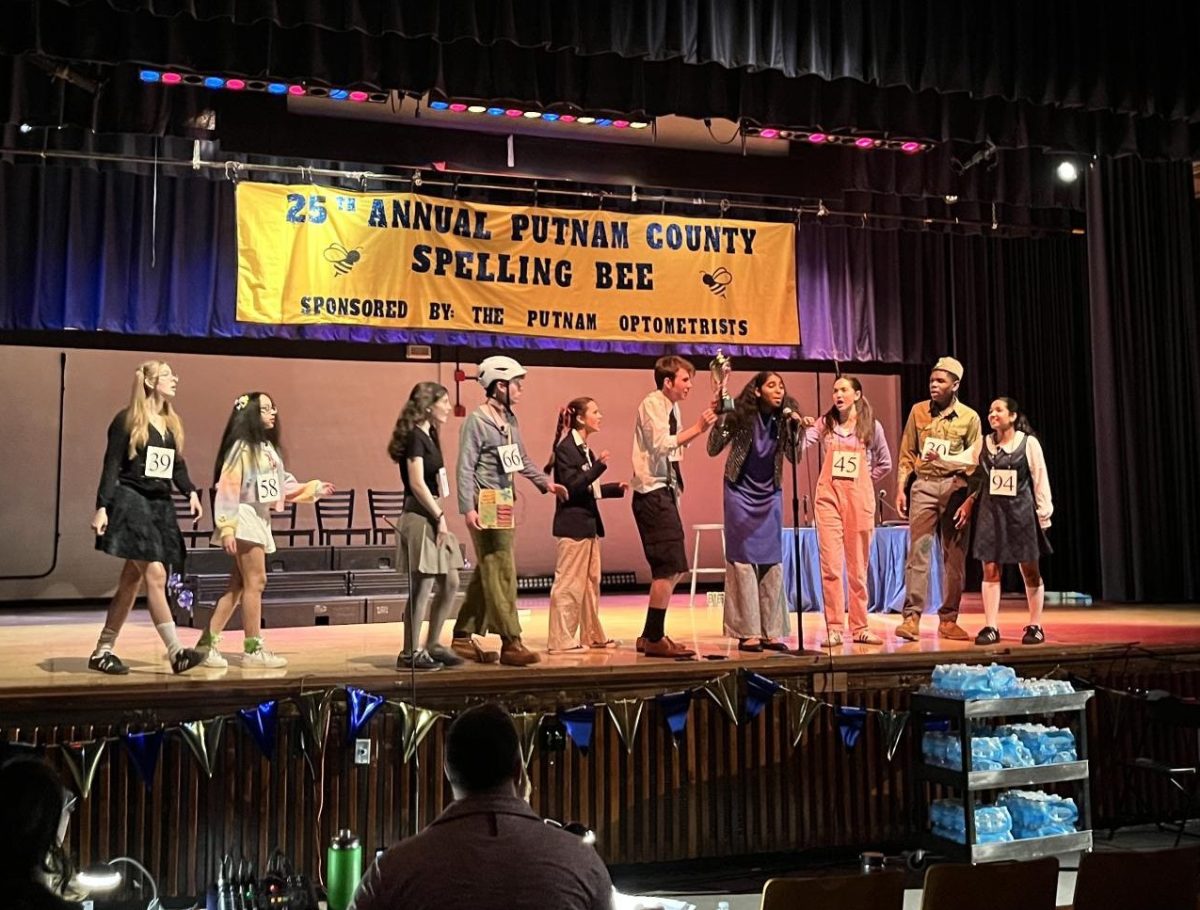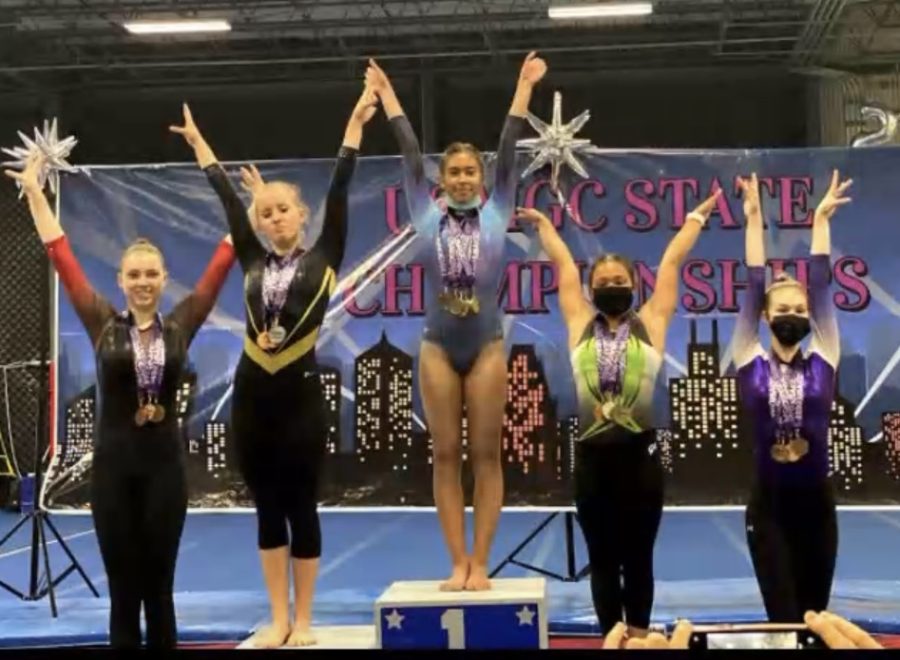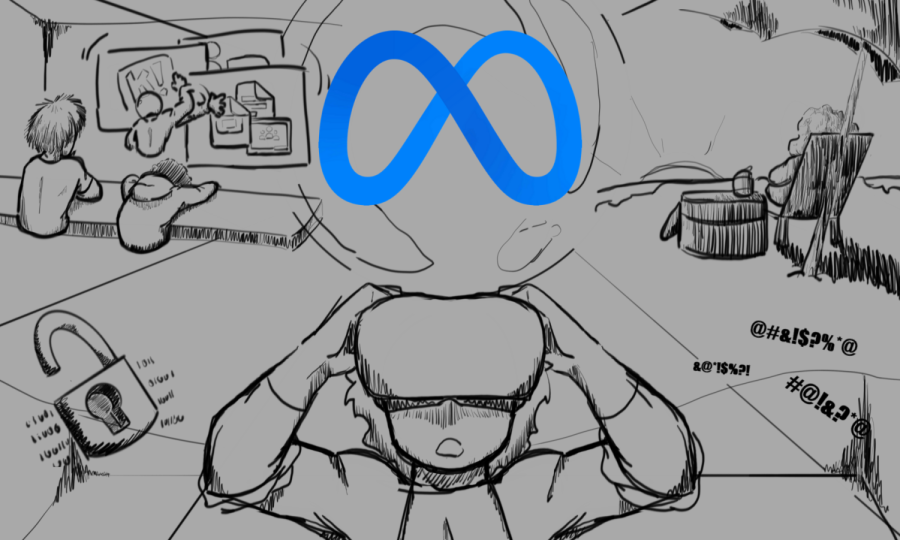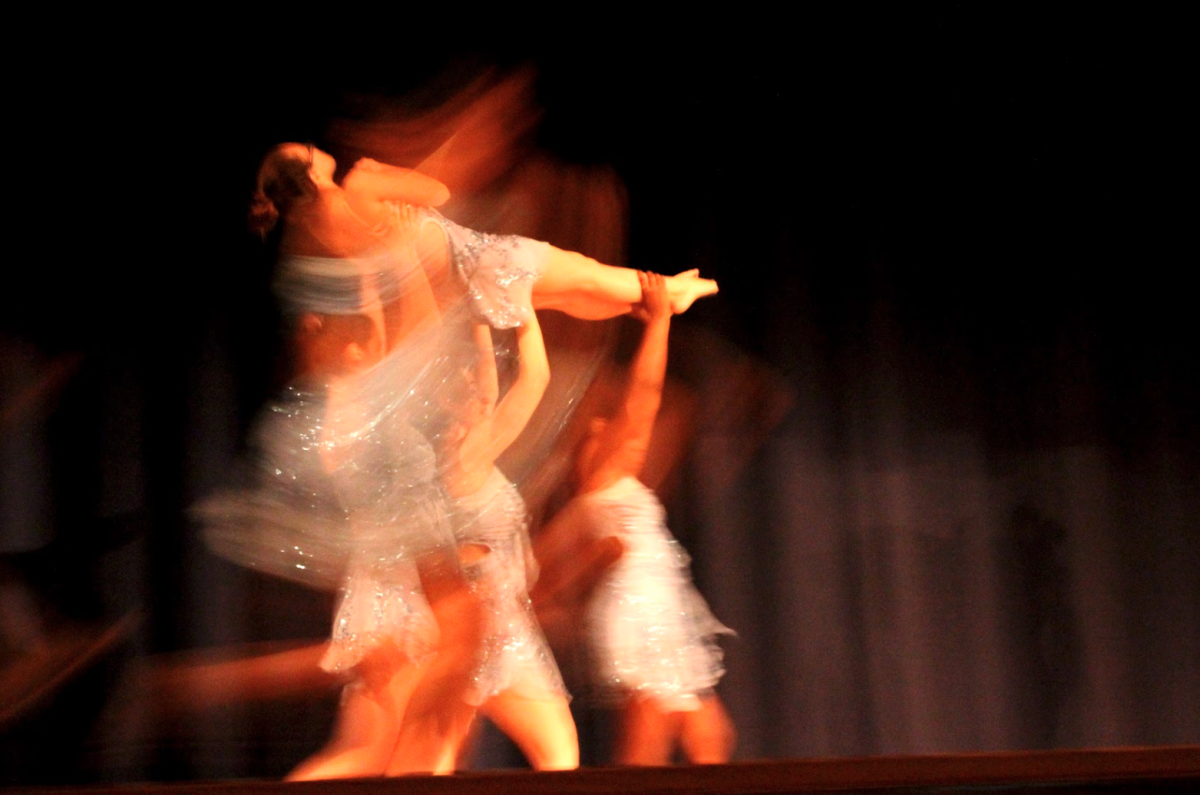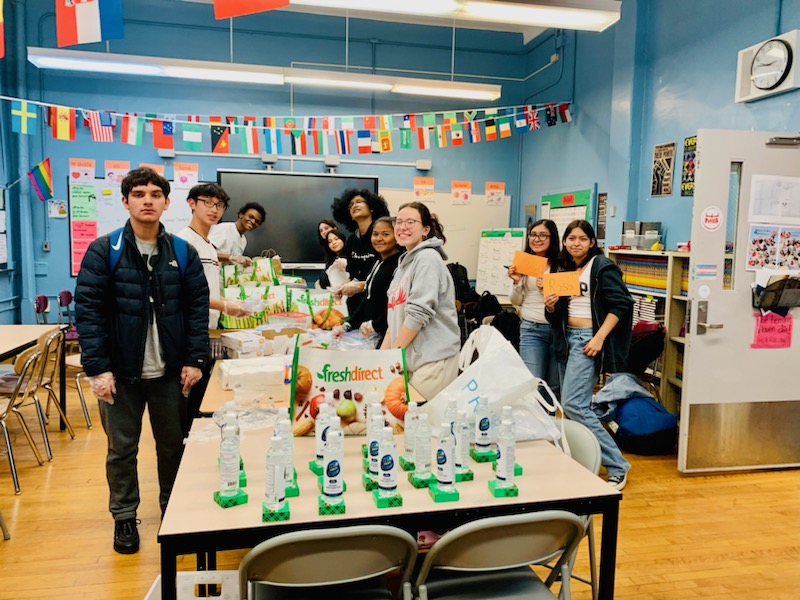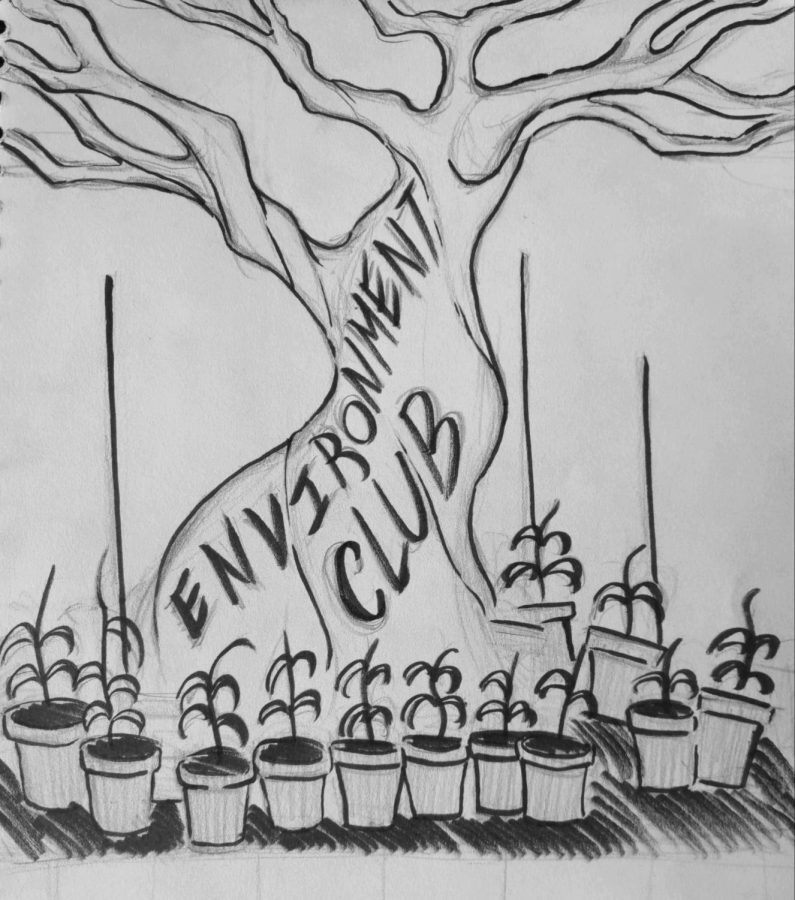The lights dimmed in the theatre room classroom, and the crowd of students, teachers, and families fell silent. It was the evening of February 6, and MBHS’s semi-annual Poetry Night was about to begin. At center stage, beneath a single spotlight, a student stepped forward. Her name was Rileigh Mclean-Moya, and as she spoke, her voice rose—steady, unfiltered—cutting through the hush like a blade.
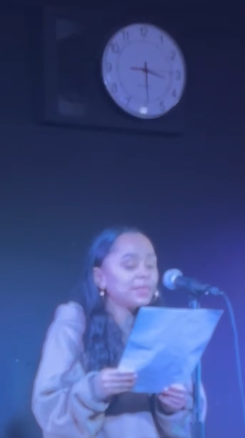
“If I put on some more pounds / I’m unlovable / I’m unwanted / I’m too big / in the male eye.”
Her delivery was deliberate, fierce and each word was a challenge, each breath sharp with purpose. Around her, the room stayed still. No shuffling papers. No distracted glances. Just quiet, concentrated attention. English teacher and poetry club leader Roberts was at the back of the room taking videos, while the MC, who is one of MBHS sophomores, introduced each performer and offered a quiet nod of encouragement before they took the mic.
Words didn’t just fill the space that night—they demanded it. Students traded fear for honesty, shaping their experiences into something undeniable. Some voices trembled. Others erupted. But all of them told the truth—loudly, quietly, fiercely.
Two of the night’s most powerful voices,Mclean-Moya and Malachi James, didn’t just perform—they questioned, confronted, and reflected. Their poetry carried themes of identity, resilience, and human connection, shaping conversations that lingered long after the final poem. More than individual narratives, their work became a mirror—reflecting the raw, collective emotion shared between performer and audience.
Mclean-Moya delivered “what i need,” a searing piece that peeled back the layers of societal pressure placed on women. Her voice didn’t just speak—it pushed back. “I want to wear the clothes I want / not the clothes you think I should wear… i really don’t give a damn / i’m okay with who i am,” she asserted.
From unrealistic body ideals to gendered double standards, her verses swung between frustration and fierce self-assurance. The room snapped to attention as she ended with a declaration that hung in the air: “because what I NEED / is me / myself / and i.” Mclean-Moya’s delivery was intense, but also clear in purpose. She ended with a declaration that hung in the air: “because what i NEED / is me / myself / and i”.
Mclean-Moya shares, “The best pieces are perfectly imperfect.” Though she’s been writing since middle school, this performance felt
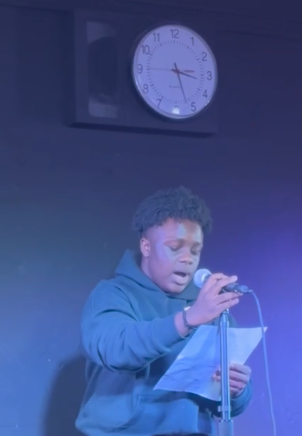
different. “I know what I speak,” she said—and the room believed her. “It’s easier to write when you write about something raw and real,” she added, describing the emotional tension behind her work. “Being real and authentic in your writing—that’s what makes it connect.”
While Mclean-Moya brought fire, poet Malachi James brought warmth. His poem, “for the heart that gave me life,” unfolded like a letter—tender, thoughtful, and deeply grounded in gratitude.
“Your warmth and light have ever seen me through,
days of rain and clouds have seen me blue.”
His words weren’t aimed at a specific person, but a presence—perhaps a mother, mentor, or guiding figure. The poem became a tribute to emotional inheritance: “Memories and attributions of the heart’s love / are the thread that weaves my days.”
Though vulnerability doesn’t always come easily to him, James shared that poetry gives him space to say what’s otherwise hard to express. “Take it slow,” he advised newer writers. “Writing is an evolving process—and at its core, poetry is about you and yourself.”
James’s performance reminded us that intimacy doesn’t always shout. Sometimes, it whispers—and still leaves a mark.
Behind the scenes, MBHS Poetry Night was shaped by the dedication of 9th-grade humanities teacher and poetry club leader Roberts, the architect of a space where student voices could thrive. In the weeks leading up to the event, Roberts spent hours working with students—refining pieces, offering feedback, and pushing them to believe in their voices. From lighting cues to tech setup, they and a team of student volunteers handled every detail. But beyond logistics, they built something harder to construct: a room where students felt safe to speak—and be heard.
Poetry can be a vessel for truth, a language of resistance, and a tool for connection. In a world where young people’s voices are often dismissed or filtered through adult expectations, MBHS Poetry Night became a space of agency and authenticity.

We didn’t leave Poetry Night with just admiration—we left with understanding. After one student stepped offstage, the room erupted into a screaming standing ovation. You could feel the support radiating from every chair. No matter the type of poem—whether whispered or shouted—the response was the same: electric. The room pulsed with energy, connection, and an unspoken agreement that every voice deserved to be heard.
Because poetry isn’t just made of ink and syllables—it’s built from lived experience. And in that room, surrounded by fearless voices, one thing became undeniably clear: storytelling matters. And when spoken aloud, it refuses to fade.
